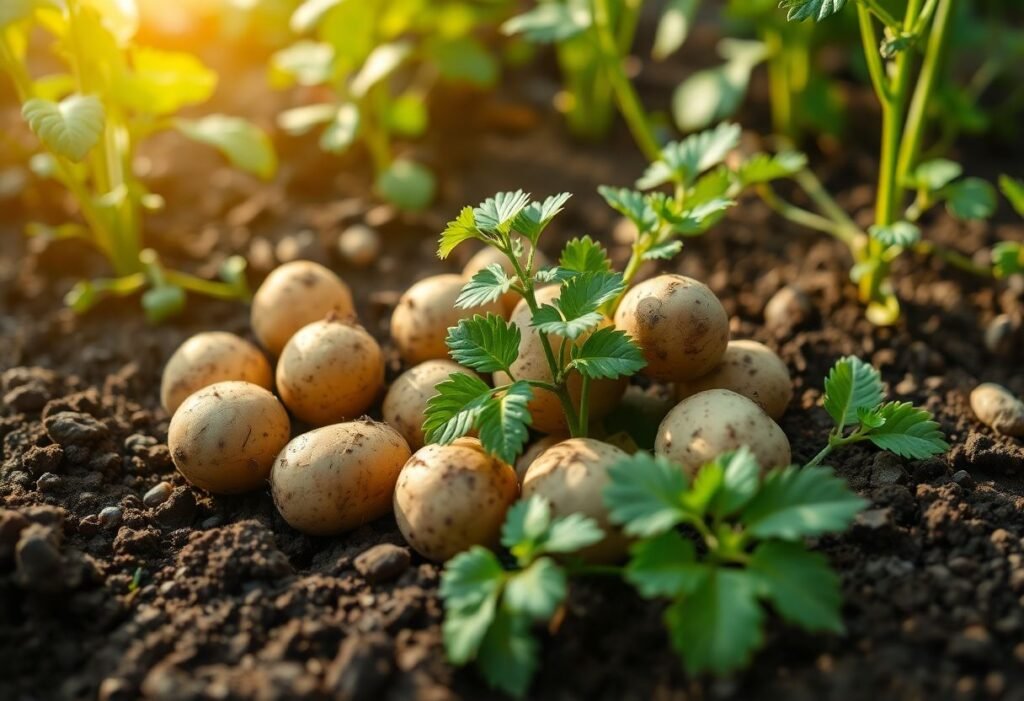Why Is Fertilizing Potatoes Important?
Fertilizing potatoes is essential because they require specific nutrients to grow strong and healthy. Without adequate fertilization, potatoes may suffer from nutrient deficiencies, affecting both yield and quality. A well-balanced potato fertilizer supplies not only nitrogen but also phosphorus and potassium, vital for robust root development and luscious tubers.
What Nutrients Do Potatoes Need?
Potatoes primarily need three key nutrients: nitrogen, phosphorus, and potassium. Each serves a different purpose in the plant’s growth. Nitrogen promotes leafy growth, phosphorus aids in creating solid roots, while potassium enhances tuber quality. To effectively fertilize potatoes, it’s crucial to provide all three macronutrients in the right proportions.
When Should You Fertilize Potatoes?
The best time to fertilize potatoes is a few weeks before planting. Enrich your soil with organic fertilizers like compost, which not only add nutrients but also improve soil structure. After planting, you can apply additional fertilizer during the growing season, especially when the plants are lush and growing vigorously.
What Fertilizers to Use?
There are various types of fertilizers to choose from. Mineral fertilizers are the most commonly used, with NPK being the most popular, containing nitrogen, phosphorus, and potassium. Additionally, you can opt for organic fertilizers such as well-composted animal manure, which is excellent for soil health. Combining both types of fertilizers is an excellent strategy to maximize their benefits.
How to Apply Fertilizers?
Applying fertilizers should be done thoughtfully. Spread them evenly in the soil, both before planting and during growth. Fertilization should follow the recommended dosage provided by the manufacturer on the packaging. Don’t forget to water your plants after applying fertilizer to help the roots absorb the nutrients effectively.
Tips for Monitoring Plant Health
One of the crucial aspects of effective potato fertilization is monitoring their condition. Regularly check the appearance of leaves and the size of tubers. If you notice yellowing leaves, it may indicate nitrogen deficiency. Remember, how to fertilize potatoes can be adjusted based on local growing conditions and how the plants react to the nutrients provided.
Conclusion
Properly fertilizing potatoes is the key to success in every garden. The right choice of fertilizers, attention to nutrient balance, and regular application will help you enjoy a hearty harvest. Don’t hesitate to experiment with different fertilizers to find the perfect fit for your soil. You control the flavor and quality of your potatoes! Start planning how to fertilize potatoes in your garden today to witness remarkable results!
Disclaimer
This article is for informational purposes only and does not replace expert advice. Always consult your local gardening expert to tailor fertilization to the specific conditions in your garden.

















